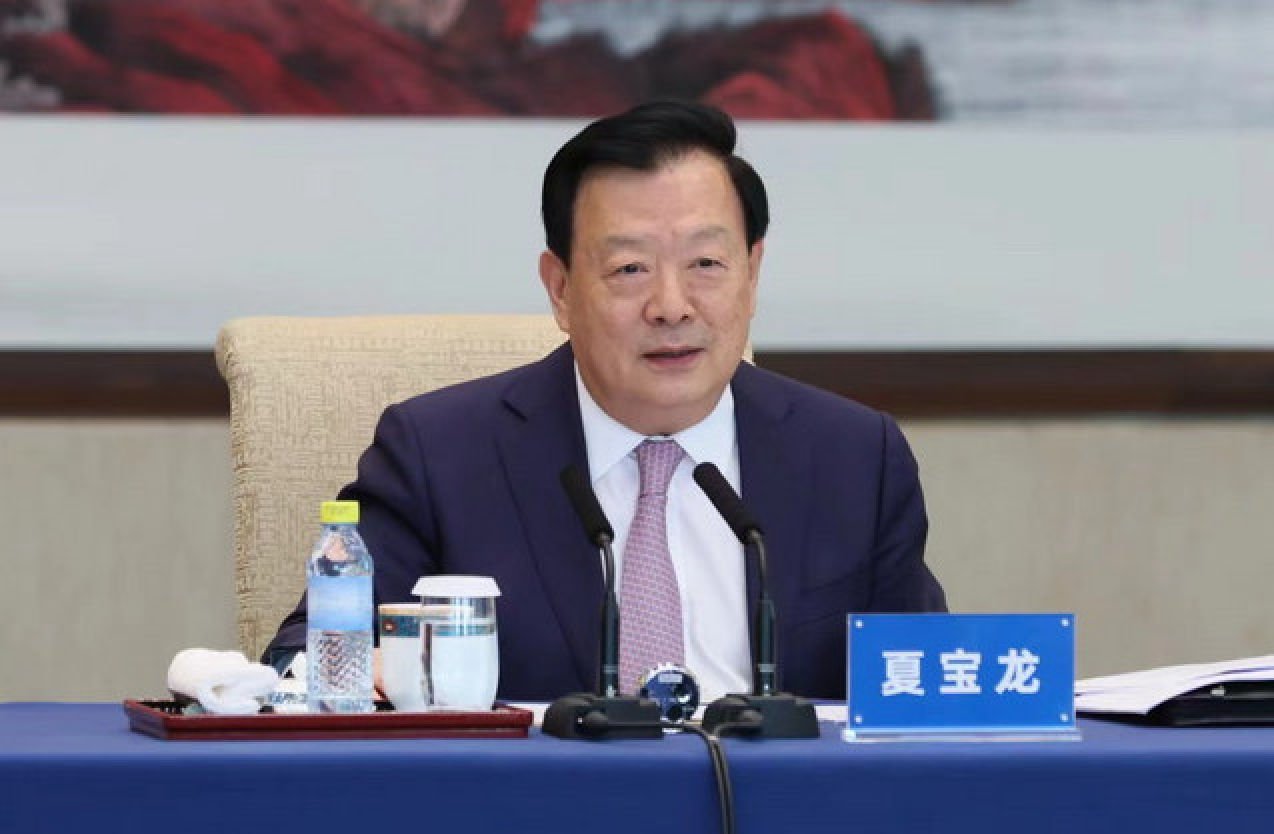
Is Beijing moving to more closely guide Hong Kong in areas critical to its success?
- Xia Baolong, Beijing’s official overseeing Hong Kong affairs, issued lengthy statements on meetings with city ministers this week
- Far longer than summaries of previous talks, latest statements viewed by some analysts as sign Beijing is taking more proactive role in guiding local affairs
Beijing’s top official overseeing Hong Kong’s affairs has issued conspicuously lengthier statements detailing his string of meetings with local officials over the past week, in a move political watchers said signalled the central government’s plan to issue explicit policy directions in areas it was most concerned about.
The shift in Beijing’s approach drew attention after Xia Baolong, director of the State Council’s Hong Kong and Macau Affairs Office, laid down his expectations for the city in rare, detailed statements about his meetings with the city’s ministers for innovation and technology, tourism and education in Beijing over the past two days.
“I hope that the leaders of Hong Kong’s tertiary institutions will take up the important responsibility of upholding the fundamentals of moral education, cultivating national sentiment and singing the theme of patriotism and love for Hong Kong,” Xia was quoted as saying in the 652-word statement.
Just a day before, the Beijing official issued a 310-word statement after meeting innovation minister Sun Dong, urging him to identify Hong Kong’s position in the sector, plan reasonably and proactively align with national development goals while “fully recognising” the city’s efforts in promoting the policy area.
But the statement that raised eyebrows the most was a 359-word one regarding his meeting with tourism chief Kevin Yeung Yun-hung on the same day.

Just two days later, Beijing announced it would allow residents from eight more mainland Chinese cities to travel to Hong Kong under the solo traveller scheme.
The three statements were at least six times longer in length than the two released one month earlier when Xia met Secretary for Financial Services and Treasury Christopher Hui Ching-yu and Secretary for Transport and Logistics Lam Sai-hung in the capital.
Both statements were no more than 50 words, mentioning only the time and place of the meeting.
Veteran political commentator Sonny Lo Siu-hing said the latest statements demonstrated Beijing’s “foremost” concerns in the development of education, tourism and innovation.
“With detailed calls being revealed, I believe explicit policy directions in these three aspects have been handed down to the bureau chiefs during the meetings,” Lo said.
Professor Lau Siu-kai, a consultant at semi-official Beijing think tank the Chinese Association of Hong Kong and Macau Studies, attributed the difference in lengths to the central government’s more proactive approach to exercising its overall jurisdiction over the city.
“The ministers and bureau chiefs were appointed by the central government, which has the authority and responsibility to extend instructions and guidance to them,” Lau said. “An increasing number of policies and actions in Hong Kong also require support and coordination from the mainland in order to be implemented.”
Yeung said on Saturday that Xia’s remarks could be seen as demonstrating the Beijing official’s great confidence in the city’s tourism market.
“The most important thing is that we should strive for changes when facing transitions and stay united in boosting the sector,” he said.
Separately, Chief Executive John Lee Ka-chiu held an in-depth discussion on “the strategic deployment for Hong Kong’s economic development” on Saturday morning with key officials and non-official members of his top advisory board, the Executive Council.
“The city is in the midst of an economic transformation, and it is crucial for us to be innovative, creative, adaptable and responsive to change,” he wrote on his Facebook page.
Lee’s comments on creativity and adaptability echoed Xia’s call during a forum marking National Security Education Day last month for Hong Kong to adopt new thinking, methods and routes to address problems.
But Ronny Tong Ka-wah, an Exco member who took part in the Saturday session, said the meeting was not a response to Xia’s calls, but had been fixed for some time.
He also denied that Xia had become more involved in the city’s governance.
“From the many times I’ve met with him he’s always very keen to hear rather than to talk,” Tong said. “When he does talk, he always does it in the form of expressing his view rather than dictating what should be done.”

